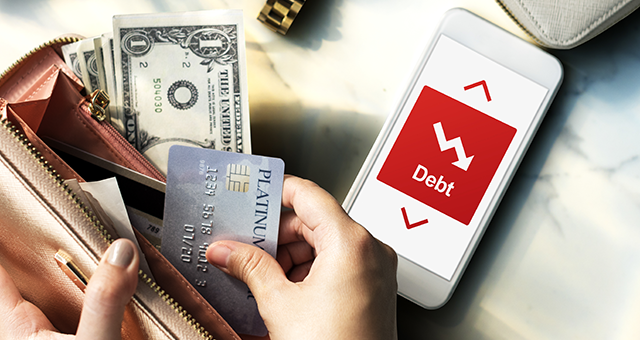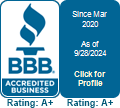
Thinking Of Paying Off Your Debt with A Personal Loan? When Is It A Good Idea?
In an ideal world, no one would take out loans to pay off their debts, but in today’s real world, there comes a time when borrowing money may be a great financial move. According to Joelle Scally, the New York Fed’s Administrator of the Center for Microeconomic Data, “the second quarter of 2022 saw significant increases in credit card balances, mortgage, and auto-loans which were partially due to rising prices.” Further, the rumor of a potential recession that plagued much of 2022, is believed to be inevitable in 2023.
Therefore, a personal loan may be the right choice for consumers to consolidate high-interest debt. It will help them achieve financial freedom and save money with lower interest rates. However, you should carefully consider when this solution makes sense and when it does not.
When Is A Personal Loan A Viable Option To Consolidate Debt?
Consolidating debt with a personal loan means that you are replacing one kind of debt with another. An example of how this works is you exchange high-interest credit card debt on multiple accounts for a low-interest personal loan. This strategy is beneficial for people who qualify for a personal loan with lesser interest rates and reasonable terms.
Here are a few reasons why a personal loan is a viable option to consolidate your debt.
1. You qualify for a lower interest rate:
If you have a credit score of 670 or higher you can be approved for a personal loan with the lowest interest rates. Personal loans come with an APR as low as 5.99%, and as of January 18, 2023, the average APR of a personal loan was 10.3%, which is significantly lower than the average credit card APR of 22.70%. Keep in mind that the interest rate on your loan will depend on your creditworthiness. However, even a small change in your interest rate means you will be saving big, especially if you have a lot of credit card debt.
2. You can consolidate your debts into one single monthly payment:
When handling many credit cards with different amounts and APRs, it will be difficult to devise a repayment plan that helps optimize monthly payments. But, moving from several cards to one personal loan can simplify your debt payoff with a much lower APR. You will not have to worry about various payment dates and amounts. It will keep you on track and organized as you go down to only one fixed monthly payment.
3. Lower your monthly payment:
If you are overwhelmed with credit card debt and paying more than your monthly net income on your bills, then a personal loan with a lower APR and a streamlined payment is the best option.
It will likely reduce your monthly payments and allow you to free up some money in your budget to put toward the loan balance allowing you to pay off your debt faster.
4. Knowing when exactly you will be debt-free
If you are paying a minimum balance on your credit cards, you may never pay back your debt. On the other hand, personal loans have a fixed interest rate and a fixed term of 24 to 60 months. It will help you pay off your debt for good and give you a final payment date to focus on. You can switch to cash or debit cards while paying off your debt. However, you may need to use your credit card to build a credit history, so use it wisely and pay off your balances every month.
When A Personal Loan Does Not Make Sense
Taking out a personal loan can be a money-saving undertaking, but, debt consolidation with a personal loan may not be the right choice if you have:
1. A manageable debt load that you can settle quickly:
You might think of applying for a balance transfer credit card if you have a small amount of debt (less than $15,000) that you can pay off comfortably in 12 to 21 months and have excellent credit. They typically have an introductory 0% APR for nine to 24 months that will help you to pay down your debt without having to incur any interest during this time. However, a balance transfer fee of around 3% to 5% will apply. Even after paying the balance transfer fee, you could save hundreds of dollars in interest if you pay off your debt within the given period. Some of these cards also offer rewards and consumer benefits, so compare the offers before applying for one.
2. You are overwhelmed with debt:
There may be times when you are deep in debt and feel helpless to pay it off without professional help. Personal loans usually range from $1,000 to $50,000. So, if your debts go beyond this, a personal loan may not be the right choice for you. In these circumstances, the other debt options include taking out a retirement account loan or applying for a home equity loan. You could also work with a debt relief company to look for a debt management or debt settlement plan.
Bottom Line
Finally, when it comes to debt consolidation, a personal loan can be a great choice, but you should take into account all of your other options and tools available.
The second and most important thing to remember is that you should not take up more debt than you can pay, no matter whatever debt reduction option you choose.
If you are overwhelmed with debt and need assistance, contact our experts at 800-900-4070 for a free debt consultation.


